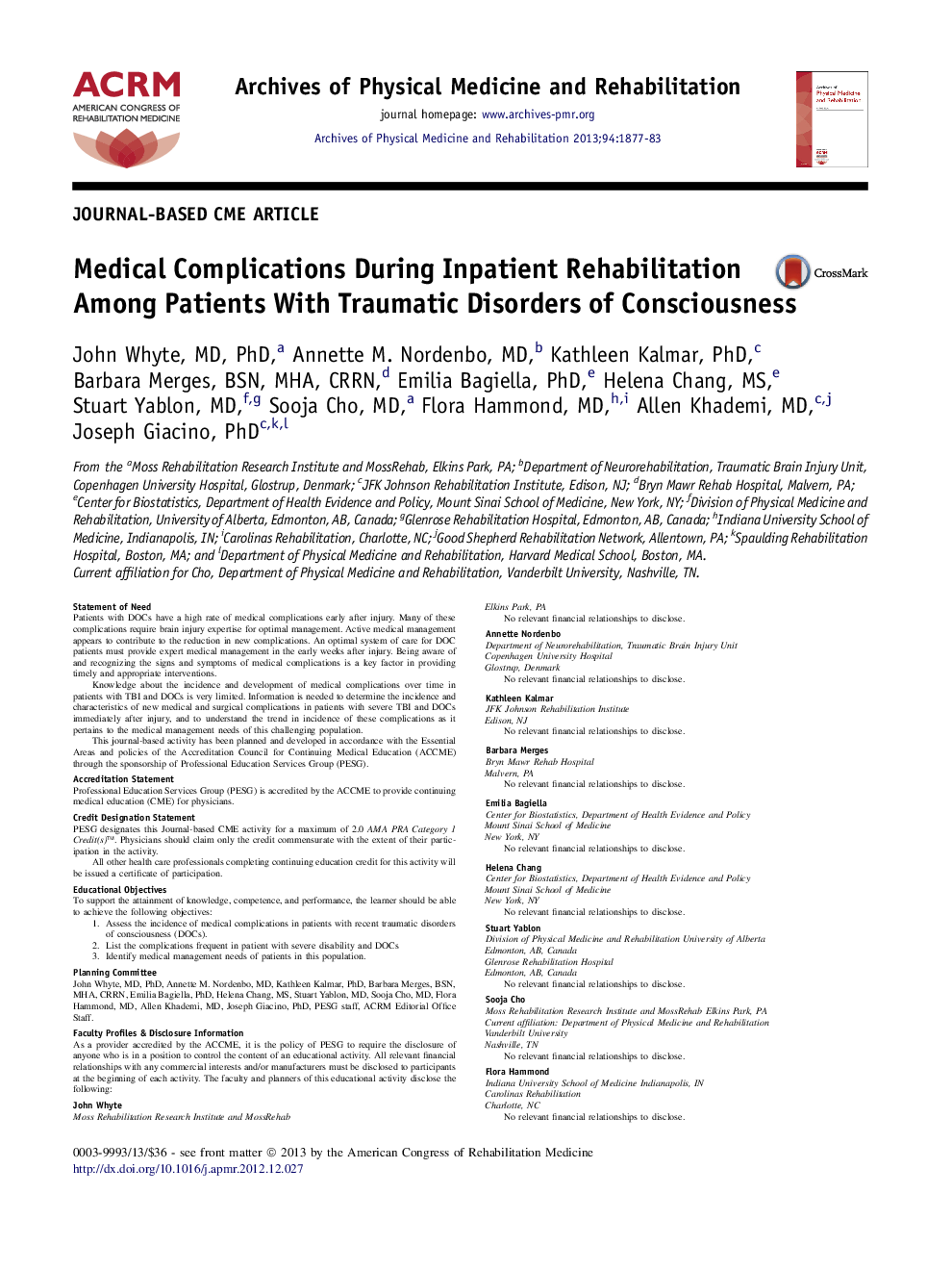| کد مقاله | کد نشریه | سال انتشار | مقاله انگلیسی | نسخه تمام متن |
|---|---|---|---|---|
| 3448613 | 1595706 | 2013 | 7 صفحه PDF | دانلود رایگان |

ObjectiveTo assess the incidence of medical complications in patients with recent traumatic disorders of consciousness (DOCs).DesignData on adverse events in a placebo controlled trial of amantadine hydrochloride revealed no group difference, which allowed these events to be reanalyzed descriptively as medical complications experienced by the 2 groups collectively.SettingEleven clinical facilities in the United States, Denmark, and Germany with specialty rehabilitation programs for patients with DOCs.ParticipantsPatients (N=184) with nonpenetrating traumatic brain injury enrolled from acute inpatient rehabilitation programs between 4 and 16 weeks postinjury.InterventionsParticipants were randomized to receive 200 to 400mg of amantadine hydrochloride or placebo daily for 4 weeks, and followed for an additional 2 weeks. Adverse events were recorded and categorized with respect to their nature, timing, and severity.Main Outcome MeasureNumber, type, and severity of medical complications occurring during the 6-week study interval.ResultsA total of 468 medical complications were documented among the patients (.40 events per week per patient). More than 80% of patients experienced at least 1 medical complication, and 41 of these were defined as serious adverse events. New medical complications declined over time in rehabilitation and were not dependent on time since injury. Hypertonia, agitation/aggression, urinary tract infection, and sleep disturbance were the most commonly reported problems. Hydrocephalus, pneumonia, gastrointestinal problems, and paroxysmal sympathetic hyperactivity were the most likely to be severe.ConclusionsPatients with DOCs have a high rate of medical complications early after injury. Many of these complications require brain injury expertise for optimal management. Active medical management appears to contribute to the reduction in new complications. An optimal system of care for DOC patients must provide expert medical management in the early weeks after injury.
Journal: Archives of Physical Medicine and Rehabilitation - Volume 94, Issue 10, October 2013, Pages 1877–1883